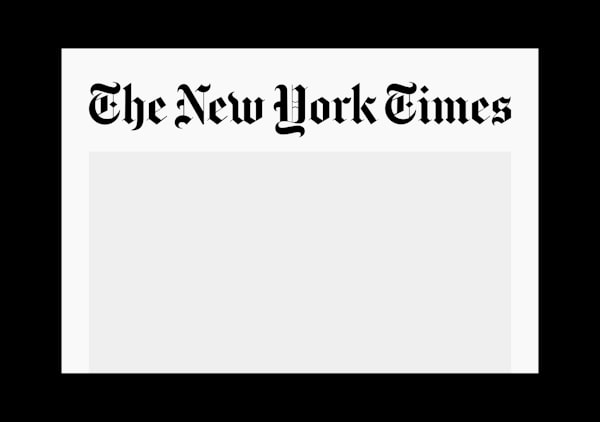As every year, last July, I shared a list of five books to boost your innovation mindset. Let's update the list with five new books that you might find interesting if you've been reading us for a while or just started.
My mindset when recommending books is what I would call converging eclecticism. This is, in my mind, all about offering a selection of unrelated books that still, together, make an open patchwork for a better understanding of what we call innovation. So yes, this is a long warning to tell you that I rarely recommend reading innovation methodology books. Eclecticism is far more efficient after an initial time investment in being curious about different topics so that they eventually overlap together.
Hopefully, some of the proposed readings will push you out of your comfort zone, just far enough. In any case, here goes the 2022 list:

1. The Revolt of the Public
First of all, Stripe Press is a small and fantastic book editor. They have beautiful books on fantastic themes at ridiculously affordable prices. Picking a book from the collection was a no-brainer; what was difficult was choosing which one. For 2022 though, my pick has to be the Crisis of Authority in the New Millennium by Martin Gurri.

Martin is one of the finest geopolitical minds around (he worked at the CIA for nearly three decades working on open media). In this book, he discusses how digital technologies have reversed the flow of information from top-down to bottom-up, and our elites have mainly become victims of the process. So yes, the Brexit and Trump but not just that. If you keep in mind that innovation is about changing the market, you'll find great value in reading how the systemic shifts in our society now unfold and the underlying mechanisms at play (as ugly as the output might have been these last years).

2. The Great Mental Models (vol.2)
There's been a lot of fuss and unproductive excitement about mental models in business these last years. Volume 2 of the Great Mental Models published by Farnam Street is about physics, chemistry, and biology. What is exciting about the book is that it's not pretending to help you rewrite the way you think.
No. The book discusses, for instance, biology and evolution as key metaphors applicable to an innovation process. Jacques MONOD says that "a totally blind process can by definition lead to anything; it can even lead to vision itself" he's already speaking of what is a portfolio strategy or how emerging processes can lead to strategic outputs. If anything, it's way less heavy-handed than telling you to be less risk-averse. Along the same lines, discussing ecosystems, competition, hierarchies, and incentives in the living realms, becomes way more illustrative than reading about Toyota or Sony.

The other fundamental ideas that will feed your innovation perspective will come from the world of physics, and you'll discover how the principles of the principles velocity and leverage could interpret how Mae West nudged her acting to get her career in high gear or how Napoleon failed at sustaining his push to Moscow.
Who needs business books, really, when the laws of nature are so powerful?

3. The Cold Start Problem
OK, this one is somehow a concession to be more directly market-oriented in this reading list. When training executives on what newspapers call the digital transformation (whatever it now means), I always explain that you essentially have to understand network effects.
This is what Andrew CHEN lays out for us. The book is aimed at product launch and software markets but does an excellent job of giving you all the tools to apply it to other contexts. For example, the technical notions of tipping point, escape velocity (which I often refer to as critical mass), and ceiling are critical for any business navigating our networked economy.
And yes, if this book is much more like your typical business recipe book, Andrew still does an excellent job explaining such overrated buzzwords as viral effects in ways you will find useful.
Still, you can buy it for your e-reader 🤗

4. Le Design des Choses
My good friend Jean-Louis published this one in 2019, sent me a copy, and never heard anything from me about it ever since. Saying that this book recommendation is long-due would be an epic euphemism.
What is it all about? Well, you're probably part of the rest of us that are not designers and always wonder what design is. This is a very indirect answer to the question that ends up giving you the best possible understanding possible – unless you commit to several years of study. The book feels like one of the many conversations I had with Jean-Louis about nothing and everything. It will start by discussing the façade of an old factory, how it speaks about the industrial past or a city, the influence of Portuguese sailors in that context, how a specific entrepreneurial culture evolved from that, and why we now have poorly coded digital interfaces for our payment systems.
If, after reading this book, your only takeaway is that putting back beauty in the world is not just art but a performative way to navigate change and disruptions, we'll all be better for it.
One bad news, though: this is a French edition only.

4 bis. The Beauty of Everyday Things
Since the previous title on my summer reading list was in French, let me give you another one in English. This is not the same book or an alternative to it, but yes, there's some interesting overlap.
The Beauty of Everyday Things is a classic of sorts where Yanagi Sōetsu describes the history and influence of Japanese folk crafts as they transitioned to a subtle art form. If you thought that Dieter Rams was groundbreaking when promoting laws of simplicity and practicality in design... think again.
It has not been my intention in the above to belittle the decorative nature of Western ceramics; there is much that is superlative there. From a Japanese viewpoint, however, the best Western pottery is that which contains a certain simplicity in its decorative effects. When there is an element of mu hidden within, their beauty becomes ever more profound. Flashy effects alone are not enough. Their effectiveness depends on how much mu they contain. Mu remains the most important, the deepest, the most fundamental of artistic principles. Japan should, I think, make a gift of this principle to the West. This is the heavy burden, the mission, that the beauty of mu must bear. Together with the beauty of odd numbers, it forms the bedrock of the Japanese sense of beauty.
Now, translate that to business models or interface design... Some already did.

5. Typeset in the Future
To close this list, this is more of a personal choice on how subtle things go a long way, and training your subconscious eye might be interesting.
Typography has been, for a long time, a wishful hobby of mine – as in: I never committed the time to understand it as well as I'd like. Typeset in the Future is initially a fantastic blog discussing how science fiction movies use specific typographic cues that bring us "in the future." And if you think about it, because typography is all around us, on the front of the ships in our streets, roads, airports, and new digital tools, it aggregates social meaning. Steve Jobs was famously known for admitting that learning calligraphy as a freshman influenced how he made design choices for Apple years later.

So this is my list for this summer. I told you... converging eclecticism.
As someone who started his professional life in fundamental research, I'm well aware that eclecticism doesn't mean dispersion. It's about living up to Robert A. Heinlein's standards of what should a proper human being be able to do:
Specialization is for insects. A human being should be able to change a diaper, plan an invasion, butcher a hog, conn a ship, design a building, write a sonnet, balance accounts, build a wall, set a bone, comfort the dying, take orders, give orders, cooperate, act alone, solve equations, analyze a new problem, pitch manure, program a computer, cook a tasty meal, fight efficiently, die gallantly.
I'm still working on many of those. Just please, don't expect me to get into sonnet writing yet.






